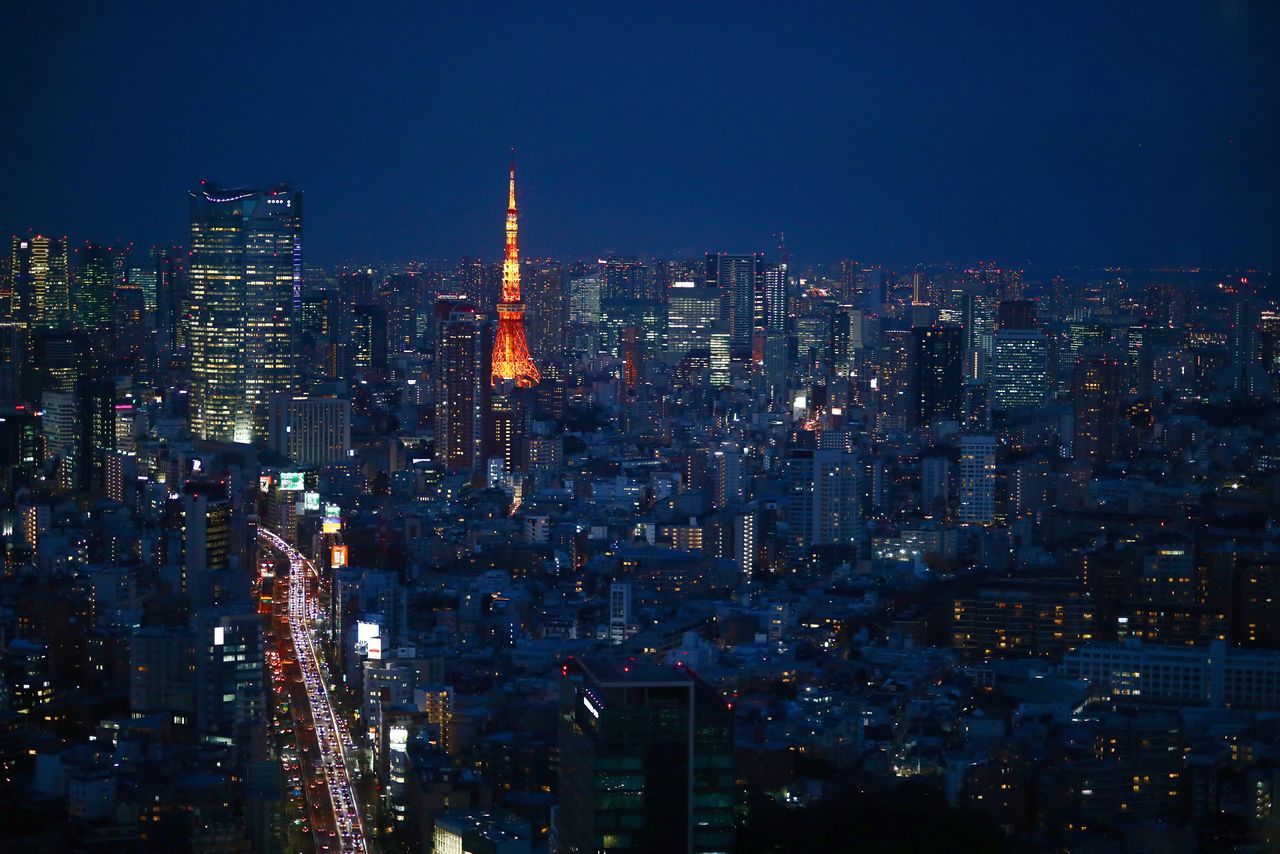Japan's wholesale inflation near record pace on commodity spike
Newsfrom Japan
- English
- 日本語
- 简体字
- 繁體字
- Français
- Español
- العربية
- Русский

FILE PHOTO: A general view with Tokyo Tower is pictured in Tokyo, Japan March 12, 2020. REUTERS/Hannibal Hanschke
By Leika Kihara
TOKYO (Reuters) -Japan's wholesale inflation slowed in January but hovered near the record pace hit in November, data showed on Thursday, a sign persistently high raw material costs were prompting more firms to raise prices.
While the mounting cost pressure could push up consumer inflation in coming months, it risks hurting a fragile economic recovery as household spending takes a hit from a spike in Omicron new coronavirus variant cases.
The corporate goods price index (CGPI) rose 8.6% in January from a year earlier, marking the 11th straight month of gains and exceeding a median market forecast for a 8.2% gain.
The index, at 109.5, was the highest since September 1985.
While the pace of increase slowed from 8.7% in December, it remained near the record 9.2% increase marked in November.
"The big picture hasn't changed. Global commodity inflation is having a big impact on domestic wholesale prices," said Shigeru Shimizu, head of the BOJ's price statistics division.
"More firms are passing on higher costs to customers as raw material prices remain high," he told a briefing.
Fuel, steel and chemical prices were key drivers of the increase, underscoring the fallout from global commodity inflation on Japan's economy.
In a sign inflationary pressure was broadening, food and beverage goods prices rose 3.4% in January from a year earlier, accelerating from a 3.0% gain in December.
Roughly 10% of food and beverage items that make up the CGPI saw prices rise, suggesting cost pressure could start to push up consumer inflation in coming months.
While Japan has not been immune to rising commodity inflation, firms have been cautious about passing on higher costs to consumers on concerns cost-sensitive households may hold back on spending.
But there have recently been signs of change with companies raising or announcing price hikes for goods ranging from snacks, instant noodles and mayonnaise.
BOJ officials have said consumer inflation won't sustainably accelerate toward their 2% target unless such price hikes are accompanied by wage increases.
Japan's core consumer prices rose just 0.5% in December from a year earlier, well below the BOJ's 2% target.
(Reporting by Leika Kihara; Editing by Clarence Fernandez and Sam Holmes)
(c) Copyright Thomson Reuters 2022. Click For Restrictions -
https://agency.reuters.com/en/copyright.html